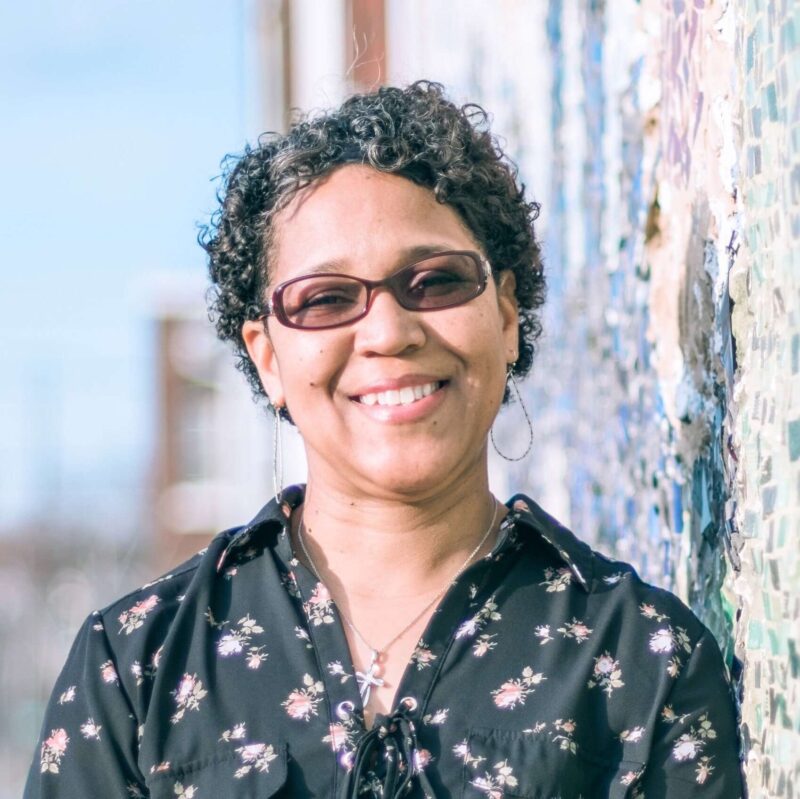In her TED Talk, The Danger of a Single Story, Chimamanda Ngozi Adichie, talks about the stories she read as a child, which bore little resemblance to her life in Nigeria. They instead featured blue-eyed characters who played in the snow, ate apples, and talked about the weather. Her ability to enter into someone else’s life and imagine an experience so foreign to her own is a testament to her creativity as a writer, even as a young girl. She writes:
I was also an early writer, and when I began to write, at about the age of seven, stories in pencil with crayon illustrations that my poor mother was obligated to read, I wrote exactly the kinds of stories I was reading: All my characters were white and blue-eyed, they played in the snow, they ate apples, and they talked a lot about the weather, how lovely it was that the sun had come out. Now, this despite the fact that I lived in Nigeria. I had never been outside Nigeria. We didn’t have snow, we ate mangoes, and we never talked about the weather, because there was no need to.
She goes on to talk about the danger of only hearing a single story about a person or country. We can grossly misunderstand them, and even ourselves, by viewing the whole of a person through a single story. Adichie says “Stories matter. Many stories matter. Stories have been used to dispossess and to malign, but stories can also be used to empower and to humanize. Stories can break the dignity of a people, but stories can also repair that broken dignity. The consequence of the single story is this: It robs people of dignity. It makes our recognition of our equal humanity difficult. It emphasizes how we are different rather than how we are similar.”
In other words, the single story often leads us straight to the echo chamber. Perhaps you’ve heard only one narrative about a certain ethnicity: “If blacks just worked harder, then they would be better off”; “Everyone knows Asians don’t experience racism”; “All white people are racists.” In the chamber, our beliefs about a person or country or issue are wholly true and never open to interrogation. In the chamber, other voices or opinions are not up for consideration; they’re shunned and deemed unreliable. In the chamber, us vs. them reigns, and grace and patience are barred from entry.
The Single Story
Yet there is a single story that should guide us as Christians. That single story is the story of God’s redemption of humanity through His Son. Within this single story, there are a myriad of ways in which this story has unfolded over time. The Lord has used a countless number of people, most of whom were different from each other, to tell and to shape and to be folded into this story. In His story, we’re not all one ethnicity or of one social standing or a part of one political party. And yet we are still one people, a chosen race, a holy nation (1 Peter 2:9). As Christians, we are blessed to take part in this single story and to share it with others so that they too can experience the joy of knowing and following Christ and telling this “old, old story of Jesus and his love”.
As Christians, we rejoice as different people come to this story in the same way: hearing the message of the gospel. “Faith comes from hearing, and hearing through the word of Christ.” All of God’s children hear God’s voice above all others and respond in joyful submission to God’s Word. Jesus says, “My sheep hear my voice” (John 10:27). God’s people hear his Word and are motivated out of love for Christ to obey. For if we are hearers only, and not also doers, we deceive ourselves (James 1:22).
And it’s this Word that teaches us that we need one another. We can learn from one another, and we should do as much. As long as the Lord has graciously given us a diversity of believers around the globe, we should endeavor to learn of Him through them, not as a replacement of hearing Him through His Word, but as ones who are called to grow up into Him through our relationships. Consider these Scriptures:
1 Corinthians 12:12-14: For just as the body is one and has many members, and all the members of the body, though many, are one body, so it is with Christ. For in one Spirit we were all baptized into one body—Jews or Greeks, slaves or free—and all were made to drink of one Spirit. For the body does not consist of one member but of many.
Romans 12:4-5: For as in one body we have many members, and the members do not all have the same function, so we, though many, are one body in Christ, and individually members one of another.
The churches in Corinth, Rome, Ephesus, and others, were diverse bodies of believers. In Ephesus, Paul instructed them that when each part of their diverse body is functioning properly, this network of diversity would promote their unity in the faith and their knowledge of the Son of God (Ephesians 4:13).
Ephesians 4:15-16: Speaking the truth in love, we are to grow up in every way into him who is the head, into Christ, from whom the whole body, joined and held together by every joint with which it is equipped, when each part is working properly, makes the body grow so that it builds itself up in love.
In other words, we need each other to grow spiritually. We need to discard the sinful single story we contrive about others to the single story that matters most, the one God sent down to us all, and enfolded us into. The story about different people brought to the same savior. The story that makes clear our unity in the body of Christ will not come despite our diversity, but through it.
And so we listen to one another’s stories for God’s sake.
Prayer Requests:
- Let’s pray that the single story that matters most would guide us as we empathetically enter the stories of our families, friends, and foes.
- Until our faith gives way to sight, let’s ask the Lord open our ears and hearts to hear His voice and respond in joyful submission to His Word.
- Let’s ask the Lord to make us eager to look for opportunities to learn from our brothers and sisters.












